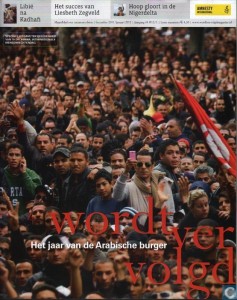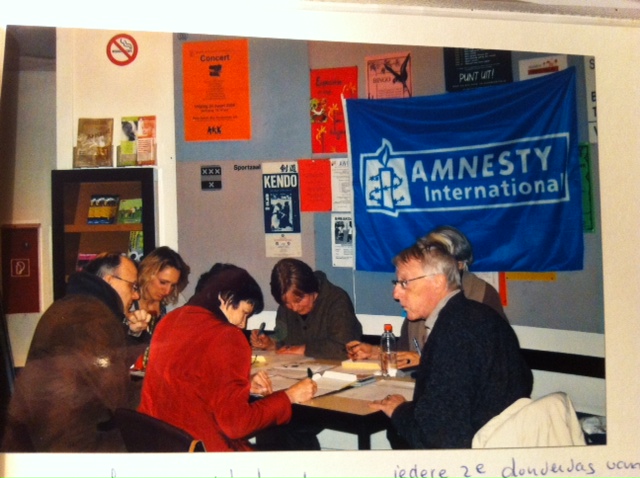Writing together
From 1978 until 1983 we wrote letters with our local Amnesty team every month. Sample letters that requested release of prisoners or a fair trial, were provided and we wrote them over. In this way, about 20 letters were written to various authorities every time we gathered. – Minke, writing since the 1970s for Amnesty in Sint Nicolaasga and Leeuwarden, 2013

The monthly magazine of Amnesty International Netherland: Wordt vervolgd, 2012
Courtesy Amnesty International Netherlands, headquarters Amsterdam
Writing groups differ from adoption groups. Amnesty volunteers regulary gathered to write for the release of different prisoners every time. The letters were addressed to local or national authorities. Information about the prisoners was published in ‘Wordt Vervolgd’, the monthly magazine of Amnesty Netherlands.
Political independence was very important for Amnesty International. Until 1991, the tensions of the Cold War forced many people to choose between the communist and the capitalist world. To stay out of this discussion, the Dutch writing groups wrote for three types of prisoners a time in this period: one from the first, Western world, one from the second, communist world, and one ‘politically unbound country’, mostly located in the so-called third world.

A leaflet of Amnesty International USA to write to three prisoners of conscience, 1988
Courtesy of Archive Amnesty International Netherlands, IISG, Amsterdam
Many Dutch people felt engaged with writing letters for prisoners of conscience. Some of the initiatives to do this were set up by people that were not even members of Amnesty Netherlands. An Amnesty study in 1990 documented 470 independent writing groups in the Netherlands. Churches, schools, clubs and groups of friends met to write for the release of prisoners. Amnesty Netherlands was happy with the popularity of letter writing actions, but the bigger the group of volunteers got, the harder it was to ensure good quality of letters.

 Follow
Follow